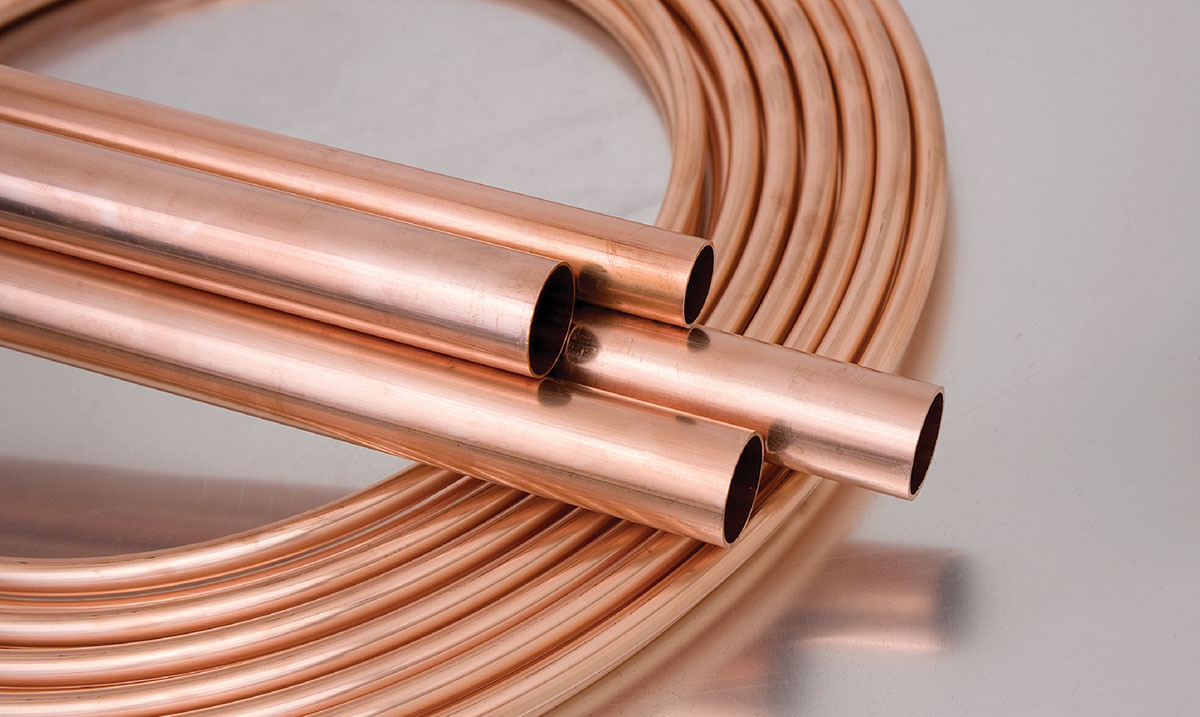Discovering the Diverse Applications of Copper Products in Modern Industries
From enhancing the effectiveness of electric systems to playing a crucial function in eco-friendly energy technologies, the convenience of copper is apparent. As industries progressively prioritize advancement and sustainability, the varied applications of copper necessitate a closer exam, particularly regarding their prospective impact on future technological improvements and ecological methods.
Electric Applications of Copper
Copper is a crucial product in the electric sector, accounting for approximately 60% of the total demand for non-ferrous metals internationally - Copper Products. Its exceptional electric conductivity, which is nearly twice that of aluminum, makes it the preferred choice for a large range of electric applications. From circuitry systems in business and property structures to high-voltage power transmission lines, copper makes sure effectiveness and reliability in electrical energy distribution
Along with electrical wiring, copper is essential to the manufacturing of electric elements such as generators, transformers, and electric motors. These components take advantage of copper's thermal conductivity and pliability, necessary for warmth dissipation and effective efficiency. Copper's resistance to rust boosts the lifespan and sturdiness of electric systems, making it an affordable option in the lengthy term.
The development of renewable resource sources, such as solar and wind power, has further boosted the demand for copper in electric applications. As industries change in the direction of sustainable energy solutions, copper's role ends up being also more vital. On the whole, the flexibility and performance attributes of copper strengthen its condition as a foundation product within the electric market, driving advancement and performance throughout numerous applications.
Pipes and Piping Solutions
In modern-day pipes systems, the option of materials dramatically affects both functionality and longevity. Copper has become a favored choice due to its distinct properties, including deterioration resistance and antimicrobial attributes. These attributes guarantee that copper piping stays risk-free and durable for carrying safe and clean water, a critical factor to consider in property and industrial applications.
Among the crucial advantages of copper in pipes is its capability to withstand heats and pressures, making it suitable for a range of applications, from warm water systems to heating and cooling down networks. In addition, copper's versatility allows for simpler setup in intricate piping designs, lowering the risk of failings and leakages.
Another noteworthy advantage is copper's lengthy life expectancy, frequently going beyond half a century with appropriate upkeep. This long life not just minimizes replacement costs however additionally adds to sustainable practices by minimizing waste. Furthermore, copper's recyclability aligns with modern environmental standards, advertising a round economy within the plumbing sector.
Copper in Renewable Power
The versatility of copper extends past pipes applications, playing an essential duty in the eco-friendly power market. In solar panels, copper is utilized in photovoltaic cells and circuitry, promoting reliable power conversion and transmission.

In addition, as the global demand for electrical vehicles (EVs) boosts, copper's function in battery systems and billing infrastructure comes to be much more significant. The material's capacity to carry out electrical energy successfully is indispensable to the click for source efficiency of EV batteries, improving variety and billing rate.
Copper's Duty in Electronic devices
Electronic devices making depends heavily on copper's outstanding buildings, specifically its high electric conductivity explanation and thermal effectiveness. These qualities make copper a suitable option for a large range of digital components, including adapters, motherboard, and electrical wiring. The metal's capacity to effectively transfer electrical signals makes certain marginal energy loss, which is critical in high-performance digital gadgets.
Moreover, copper's thermal conductivity plays a substantial role in warm dissipation, safeguarding delicate elements from overheating. This is especially vital in modern-day electronic devices, where small designs bring about enhanced heat generation. Copper is also preferred for its malleability and ductility, permitting it to be quickly shaped into complex designs that fulfill the demands of innovative digital applications.
With the increase of customer electronics, telecommunications, and electric lorries, the demand for copper in the electronics market proceeds to expand. Therefore, copper stays a keystone product in the ever-expanding field of electronic devices.
Ingenious Utilizes in Production

One remarkable application is in additive manufacturing, where copper-based materials are utilized in 3D printing processes. This enables the production of light-weight components visit this website and complicated geometries, particularly in the aerospace and automobile sectors. In addition, copper's thermal conductivity makes it an optimal selection for heat exchangers, enhancing performance in industrial cooling systems.
Additionally, the surge of clever production has seen the unification of copper in IoT devices, where its conductive capabilities support advanced picking up innovations. In the world of eco-friendly energy, copper is pivotal in the production of solar panels and wind turbines, helping with much more effective power conversion and circulation.
As industries pursue sustainability and development, copper's adaptability and efficiency remain to place it as an important material, driving developments in manufacturing and adding to the development of smarter, more effective products.
Final Thought
The essential duty of copper in sustainable power and its necessary feature in electronic devices highlight its importance in progressing sustainable methods. Collectively, these applications show copper's important contribution to technical progress and commercial performance in modern culture.
From enhancing the performance of electrical systems to playing a crucial function in renewable power technologies, the adaptability of copper is evident. As markets significantly prioritize advancement and sustainability, the varied applications of copper require a closer assessment, specifically regarding their potential impact on future technological improvements and ecological practices.
The growth of sustainable power resources, such as solar and wind power, has additionally raised the need for copper in electrical applications. In general, the adaptability and performance features of copper strengthen its status as a cornerstone material within the electrical market, driving development and effectiveness throughout different applications.
The adaptability of copper expands past pipes applications, playing a crucial function in the sustainable energy market.